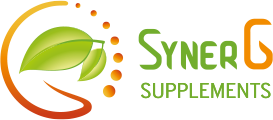
The Importance of Protein in a Vegetarian Diet

Learn how to avoid deficiencies while enjoying the benefits of your diet.
Vegetarian diet, how does it work?
First, it is important to distinguish the vegetarian diet from the vegan diet. The first consists only of a diet without meat and products derived from the sea, also called lacto-ovo-vegetarianism or lacto-vegetarianism. It therefore includes the consumption of eggs (in the first case only) and dairy products. Some vegetarians choose to eliminate meat but continue to eat fish and seafood.
On the other hand, vegans consume only vegetable products, which contain strictly no food of animal origin. It is therefore a stricter regime and more difficult to follow, but is promoted in the fashion of “healthy” and other diets wishing to limit the consumption of products that are bad for your health.
In principle, these diets lead to deficiencies, because vegetarians deprive themselves of elements useful for the proper functioning of our bodies, which are found in an omnivorous diet. Yet, there are natural solutions to not deprive us of anything while eating according to our desires and food principles.
Vegetarian diet: consuming protein, it’s possible!
Indeed, among the deficiencies feared by vegetarians, one finds proteins. Their benefits are numerous, among which are a good quality of the immune system, a good support against aggressors, or a contribution against a lack of energy. This is why it is important to consume protein regularly, even when you follow a vegetarian diet!
Natural Proteins
There is firstly the option of natural proteins: they are found in dairy products and in eggs, for vegetarians. But vegans also have the ability to consume protein in foods such as legumes (including soybeans and the many products that are derived, such as tofu and soy milk), nuts and seeds, and cereals.
These proteins are not “complete”, but consuming them at different meals every day allows the body to reconstitute complete proteins. The lack of protein in plant foods is therefore not inevitable and vegetarians have access to a multitude of products enabling them to avoid deficiencies.
Protein powder and other food supplements
Protein also exists in powder form, a product that is mainly assimilated with athletes who consume a lot to increase the visibility of their physical efforts and to compensate for their significant use of these resources during their workouts.
But this solution can also be used in the diet of vegetarians, as well as other dietary supplements that can compensate for the common deficiencies caused by their diet: vitamin B12, iron, zinc, vitamin D, Calcium and omega-3. In the form of capsules or powder, these nutrient intakes are beneficial for health, beauty and will help to keep you in Olympic shape!
Vegetarianism is not necessarily a restrictive or bad diet for health: everything you and your body need is in nature, and at worst, there is always the little boost from dietary supplements!
Discovering a wide range of natural products allows us to supplement our food intake thus avoiding any deficiencies. Have a look at our SynerG Supplements online store for some of the great choices available.


